
Ulusların Yükselişi
İmalat, Ticaret, Sanayi Politikası ve Ekonomik Kalkınma
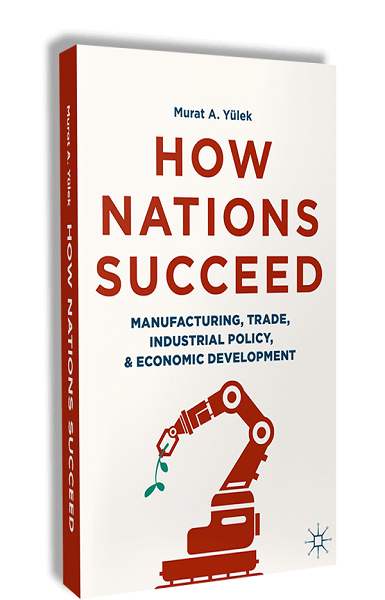
How Nations Succeed
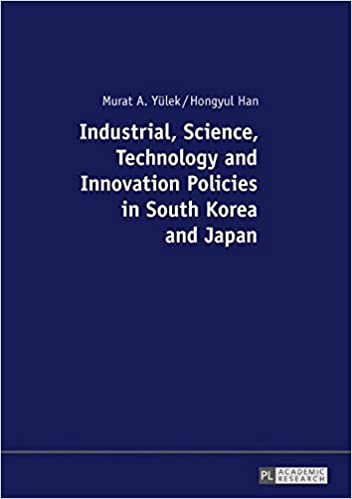
Industrial, Science, Technology and Innovation Policies in South Korea and Japan
Designing effective industrial and science, technology and innovation (STI) policies is still an ongoing quest for both developed and developing countries. This book examines industrial as well as STI policies in East Asian countries South Korea and Japan comparatively. Japan is one of the largest industrial economies in the world. However, it is experiencing competitiveness problems with a relative fall in its manufacturing industry indicators such as exports. Korea is, on the other hand, a rapidly rising industrial power challenging larger peers including Japan. The two economies are competing in similar markets and are on different cycles of development. This book looks at the competitive positions of the two countries in the field of industrial and STI policies in general and in the sectors of railway equipment, medical equipment, aviation equipment and electronics.
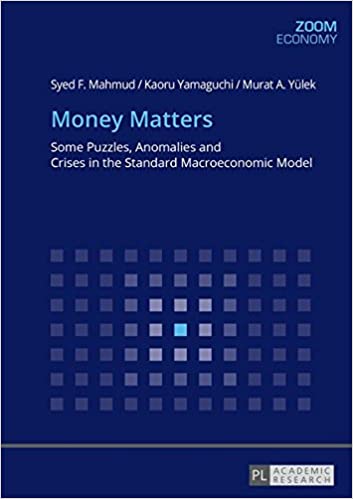
Money Matters: Some Puzzles, Anomalies and Crises in the Standard Macroeconomic Model
The 2007 financial crisis and the Great Recession have prompted a debate about the state of macroeconomics, and many orthodox economists have argued that macroeconomics has entered a Dark Age.
This book discusses the shortcomings of the standard macroeconomic model (SMM). The SMM failed to explain the real world and anticipate the global financial crises. The main reasons for this failure have been attributed to its inability to assign an active role of money and by the absence of appropriate modelling of financial markets.
The book also discusses how the SMM can be reformed to better account for the real world and policy prescriptions, such as the Chicago Plan, that can reduce the risks emanating from excessive money creation by banks.
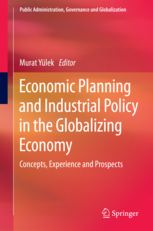
Economic Planning and Industrial Policy in the Globalizing Economy
This book discusses national development planning in the context of a globalized world economy. National economic development planning, the process of defining strategic economic objectives for a country and designing policies and institutional frameworks to attain them, was popular in many countries in the 1960s and 1970s. Over time it lost its appeal. More recently, with globalization accelerating and economic competition increasing, it is making a comeback in different countries under different forms. National planning in this new era is different than the earlier quantitative planning approaches. It employs different tools, such as strategic visions and action plans, revived forms of physical infrastructure planning, industrial policy, and cluster policy. Built on the research of international scholars with firsthand knowledge of the countries in question, this volume presents and evaluates current national planning strategies and policy worldwide. It will be of interest to both academicians who study and teach globalization and development as well as policy makers who may use it as a reference as they contemplate their own strategies.
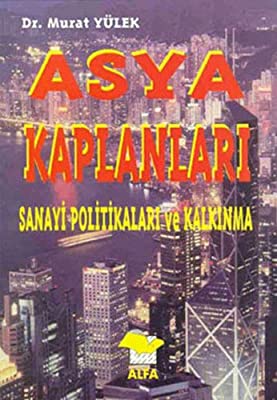
Asya Kaplanları Sanayi Politikaları ve Kalkınma
Bu kitap, dünyanın en dinamik ekonomilerinin yer aldığı Doğu Asya’da, kalkınma ve sanayileşme sürecini mümkün kılan sanayi ve kalkınma politikaları incelenmektedir. Kitapta, Kore, Tayvan, Singapur ve Hong Kong’da uygulanan politikalar ele alınmaktadır. Doğu Asya’da ilk sanayileşme tecrübesini gerçekleştiren Japonya ve bununla birlikte Çin ile ilgili değerlendirmeler de bulunmaktadır. Kitapta, ülke tecrübeleri teorik bir çerçeve içinde ele alınmaktadır. İlk defa Gerschenkron tarafından ortaya atılan, ‘geç kalkınmışlığın avantajını’ sanayi politikaları ve kalkınma bankaları ile yakalama konusunda geç-geç kalkınan Doğu Asya ülkeleri neler yaptı? Rosenstein-Rodan’ın ‘Big Push,’ Paul Romer’in içsel büyüme teorisi, Barro’nun kamu politikalarının rolü gibi tartışmalar çerçevesinde Doğu Asya kalkınmasına nasıl bakmalıyız?
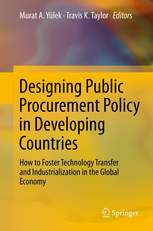
Designing Public Procurement Policy in Developing Countries
This book presents effective strategies for developing countries to leverage their public sector demand for manufactured imports to promote industrialization, trade, and technology transfer. Technology transfer and its absorption is considered one of the most crucial and complicated challenges for developing countries, which are characterized by insufficient infrastructure, low technological intensity of the domestic capital stock, and high levels of manufactured imports. Which strategies and policy tools can governments employ to link demand with technology transfer, thereby enhancing absorption capacity and development in emerging economies? This book is part of a broader project launched by PGlobal Global Advisory and Training Services Ltd., in cooperation with Istanbul Commerce University (İTUCU) and the Scientific and Technological Research Council of Turkey (TÜBİTAK). The contributors to this book are policymakers, academicians, and experts who are working together to identify problems and develop policy recommendations for public procurement with respect to economic development. The book includes theoretical, empirical, and case study analyses of technology transfer mechanisms, public procurement policies, and countertrade and offset strategies. The lessons learned from these chapters will be of interest to both academics and policymakers concerned with technology transfer, industrial policy, and economic development.
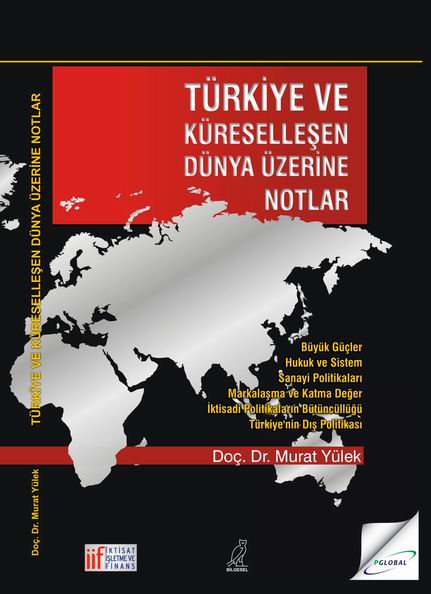
Türkiye ve Küreselleşen Dünya Üzerine Notlar
İktisatçı Dr. Murat Yülek’in yeni kitabı Bilgesel Yayınları tarafından yayınlandı. Kitap, yazarın 2005 yılından itibaren Dünya Gazetesi’nde yayınlanan yazılarından oluşan bir seçkidir. Türkiye ve Küreselleşen Dünya Üzerine Notlar adlı kitabında Yülek; 20 yılı aşan uluslar arası tecrübesiyle, Dünya ve Türkiye ekonomisine ilişkin meseleleri tartışıyor, çözüme yönelik görüşlerini kamuoyu ile paylaşıyor. TAIB Yatırım Bank Yönetim Kurulu üyesi ve PGlobal Küresel Danışmanlık Hizmetleri Ltd. Şti. ortağı olan Yülek, Washington D.C.- IMF’de iktisatçı ve Georgetown Üniversitesinde öğretim görevlisi olarak çalıştı. Cidde’de İslam Kalkınma Bankası’nda yatırım uzmanı görevlerinde bulundu. 15’i aşkın ülkede ekonomi politikası ve proje finansmanı alanlarında çeşitli sorumluluklar aldı. Doğu Asya’da uygulanan sanayi ve kalkınma politikaları ile finans sektörü alanlarında yurt içinde ve dışında çeşitli kitap ve makaleleri yayınlanan yazar son kitabında büyük ekonomilerin geleceğini ve Türkiye’nin dış politikasını da ele alıyor. Türkiye ve Küreselleşen Dünya Üzerine Notlar isimli kitabında Murat Yülek; Türk şirketlerinin ve Türk ekonomisinin rekabet gücünü etkileyen ana unsurları ( markalaşma ve katma değer üretimi, hukuk, sistem, kurumsallaşma ) sanayi politikaları ve ekonomi politikalarının bütüncüllüğü çerçevesinde tartışıyor. Dünya gazetesi Genel yayın Yönetmeni Osman S. Arolat kitabın önsözünde; “ Yülek’in yazıları son dönem gazeteciliğinin varmak istediği ‘algılamayı kolaylaştırmak’ özelliğini taşıyor ” diyor.